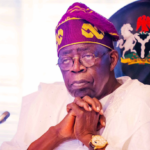
Foreign investors may choose to hold off on investing in Nigeria due to the ongoing forex crisis, according to a new report by leading research and investment company, Comercio Partners.
The firm’s Macroeconomic Outlook 2024 report, themed, “Finding Rain in Drought’’, analysed the macroeconomic landscape for the current year and made relevant economic recommendations and forecasts.
According to the report, the prevailing forex backlog, coupled with external challenges amidst global economic uncertainties, casts a shadow of uncertainty over Nigeria’s economic horizon.
It warned that as the backlog intensifies, Nigeria risks heightened pressure on the exchange rate.
It further said that the ‘ominous scenario’ was compounded by factors such as dwindling external reserves and capricious fluctuations in crude oil prices.
The report read in part, “The spectre of exchange rate strain introduces an element of volatility and uncertainty into the local bonds market.
“Local investors, cognisant of the potential impact of currency devaluation on their investments’ real returns, approach the market cautiously. Foreign investors, too, may choose to remain on the sidelines, navigating the turbulent waters with prudence.”
The report also warned that as Nigeria charts its course through these economic headwinds, the path forward remains uncertain.
“The nation stands at a pivotal juncture, where the interplay of inflationary pressures, tightening measures, liquidity dynamics, and currency challenges will shape its economic destiny in the coming months.
“Investors, both domestic and foreign, watch intently, braced for the next chapter in Nigeria’s economic odyssey,” the report read further.
In recent weeks, the naira has faced unrelenting devaluation pressure, plunging from N899/$ as of December 31, 2023 to N1,534/$ on February 12, 2024.
This came on the heels of the decision by the Central Bank of Nigeria to rejigger the metric used to calculate the exchange rate.
Monday’s official rate became the worst official exchange rate since the CBN floated the national currency in June 2023.
The Central Bank of Nigeria, on its part, has blamed authorised dealers for financial market price transparency, warning them against engaging in sharp practices.
Governments worldwide face scrutiny and macroeconomic pressure.
Giving a prelude of the report, the investment firm had said, “Precision meets analysis as we zoom in on select African Eurobond markets, dissecting the impact of hawkish global monetary policies and country-specific headwinds. Uncover nuanced challenges faced by countries like Egypt, caught in the crossfire of geopolitical fallout. Navigate hurdles experienced by Kenya and Ghana, entangled in election uncertainties and concerns about fiscal sustainability.”
According to Comercio Partner, the detailed macro analysis report covers areas such as the global outlook, inflationary quagmires, long-term interest rates, global equities, and commodities.





